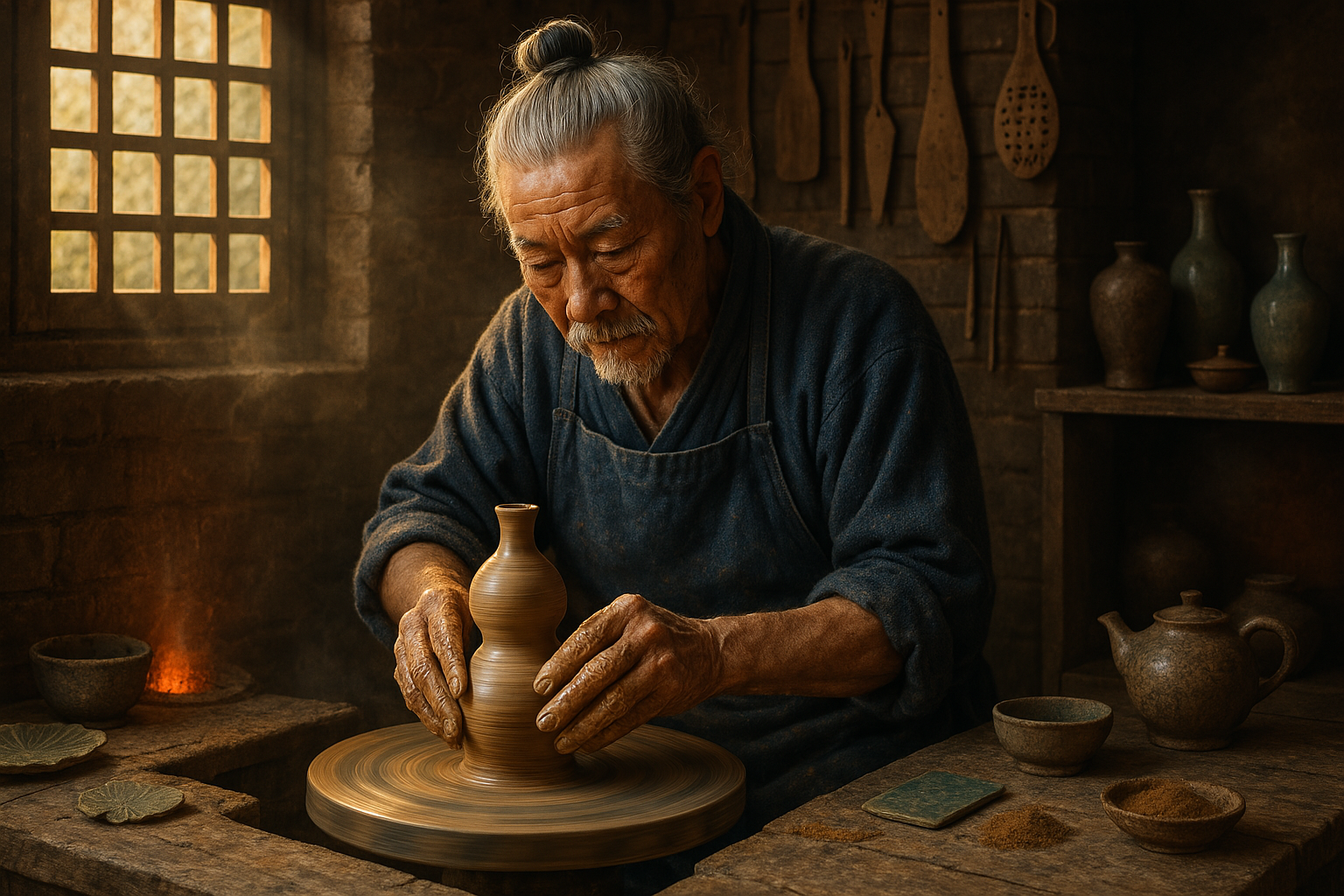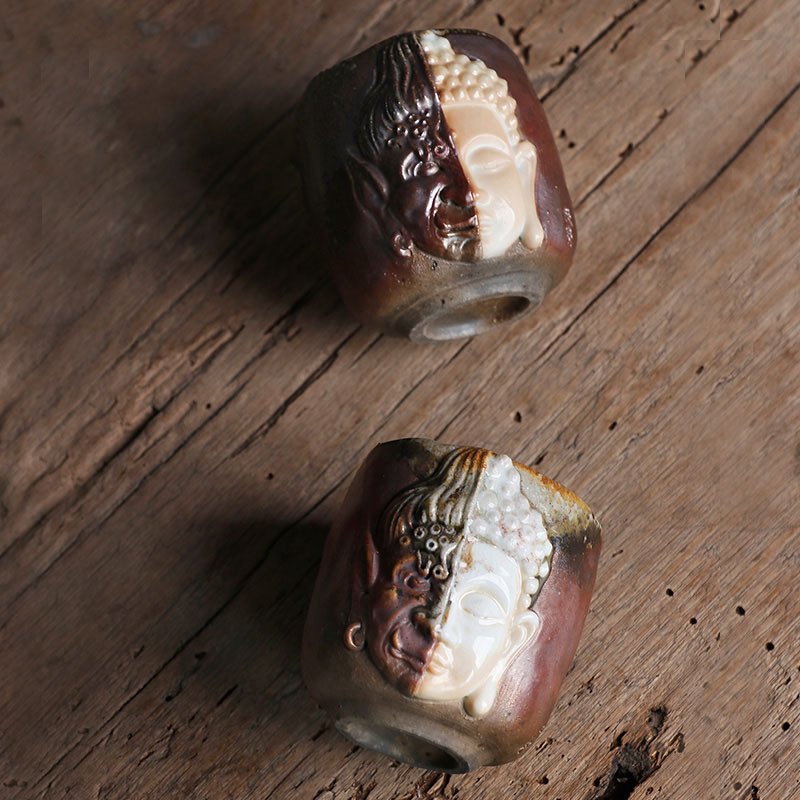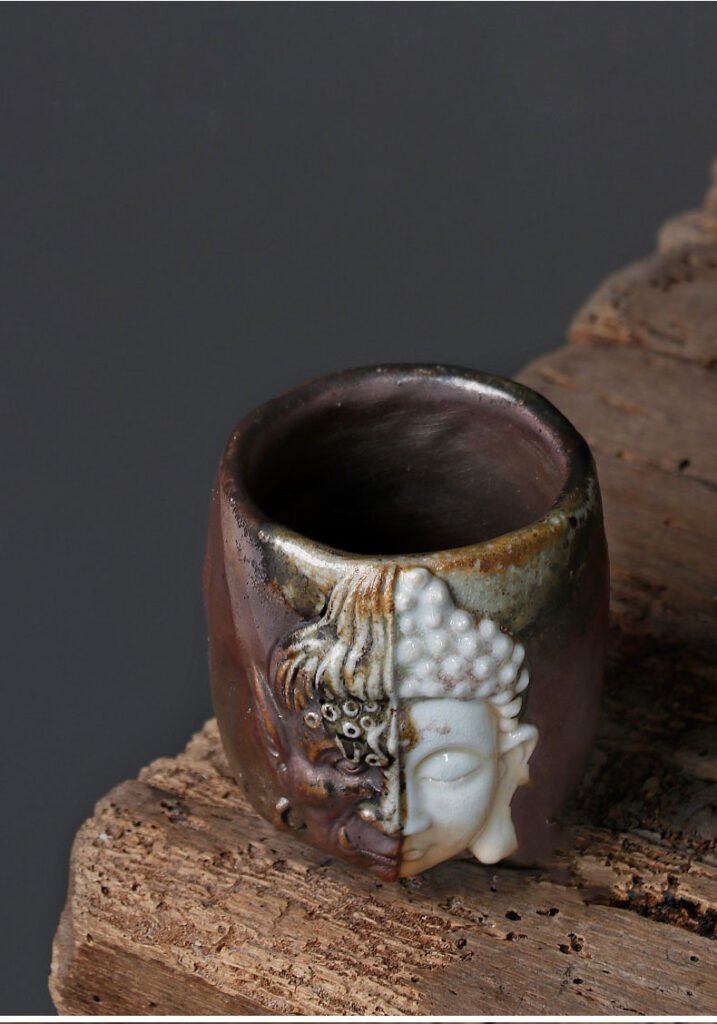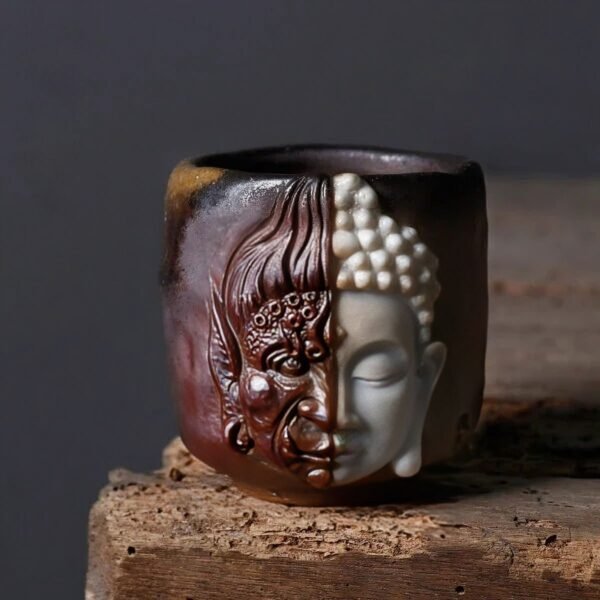In a fast-paced, industrialized world, a few artisans still hold onto one of the oldest and most primal ways of making ceramics—wood-firing. No machines, no shortcuts—just fire, clay, wood, and the quiet rhythm between them. From raw earth to soulful objects, this is a craft shaped by time, nature, and human touch.
So, how does a lump of earth become a wood-fired ceramic mug in your hand? Let’s uncover the journey.
Step 1: It All Starts with Clay
The life of a wood-fired piece begins with humble, unassuming clay. But not just any clay—wood firing requires special types that can withstand extreme heat and flame, like iron-rich or coarse clay bodies. Potters refine and age it, making it strong and pliable, ready to become something beautiful.
In this moment, clay is pure potential.

Step 2: Shaped by Hand, Imprinted with Soul
Unlike factory-perfect forms, wood-fired pieces embrace natural curves and character. Some are shaped on the wheel, others by hand—slapped, pinched, or coiled into shape. Every motion leaves a trace; every dent holds a story.
These aren’t products—they’re conversations between hand and earth.

Step 3: Slow Drying, Quiet Waiting
After shaping, the piece must dry—slowly and carefully. Rushing risks cracks; waiting too long risks mold. Days pass. Maybe weeks. The form settles, strengthens, prepares for the fire.
This is a pause with purpose—a discipline of patience.
Step 4: No Glaze, No Limits
Most wood-fired works skip glaze. Why? Because the flame will create its own magic. During firing, flying ash from the burning wood settles on the pieces. Under heat, it melts into a natural glaze—leaving golden drips, rust-red blushing, or soft green hues.
The surface becomes a map of the fire’s journey.

Step 5: Into the Fire—1200°C and Rising
Now the real test: the fire. Wood kilns are loaded carefully, then stoked non-stop for days. Flames roar, temperatures climb above 1200°C. Potters feed the kiln around the clock, watching, listening, adjusting.
This is not mass production. It’s ritual, labor, and intuition. The fire leaves its mark as it sees fit—never twice the same.
Step 6: Opening the Kiln—Where Magic Reveals Itself
After the firing, the kiln cools. A day. Two days. Finally, the door opens—and the first glimpse of what the fire has made. Some pieces crack. Some glow. Some bear colors no one expected.
Each mug or bowl is a surprise—a collaboration between chance and mastery.

Step 7: A Story You Can Hold
Now, the piece is complete. It might carry flame marks on its rim or specks of ash like stardust. It may be raw at the base, smooth on the lip. Each detail is a fingerprint of its creation.
When you hold a wood-fired mug, you hold not just clay—but time, effort, and an untamed element of the natural world.
✦ Final Thoughts: Choosing Soul Over Standard
At One Percent Clay, we use natural clay and traditional wood-firing to honor the 1% who seek the rare, the mindful, the meaningful. No two pieces are alike. And none can ever be copied.
A handful of earth. A blaze of fire. A touch of the human heart.
Take home a wood-fired piece. Let it speak. Let it serve. Let it stay with you, for years to come.
🛒 Browse Our Wood-Fired Collection
Zen Tenmoku Cup – One-of-a-Kind Handcrafted Series| Large Wood-Fired Cup
Height: 7cm
Diameter: 7.3cm

